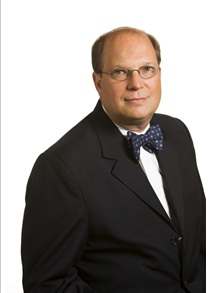 A student at the Medill School of Journalism at Northwestern University in Chicago was gracious enough to invite me to speak on a panel on Bradley Manning, the alleged whistleblower to WikiLeaks, which he had to put together for his “Media, Ethics and the Law” class. I participated in the panel this morning.
A student at the Medill School of Journalism at Northwestern University in Chicago was gracious enough to invite me to speak on a panel on Bradley Manning, the alleged whistleblower to WikiLeaks, which he had to put together for his “Media, Ethics and the Law” class. I participated in the panel this morning.
In addition to myself, the student informed me Timothy McNulty, a foreign editor for the Chicago Tribune who covered the Iraq invasion and the Afghanistan War, and Paul Rosenzweig, Carnegie Visiting Fellow and former Department of Homeland Security official, would be participating. A couple of student journalists would speak during the panel as well.
McNulty and Rosenzweig were both present in the classroom where the panel was held. I was in The Nation Magazine office in Manhattan, New York.
The student who organized the panel had me call in and put me on speakerphone. I was able to listen to what McNulty and Rosenzweig were saying.
Rosenzweig began the panel saying with assurance there isn’t any doubt the material WikiLeaks has released has caused risks. He said lists have been created of people who were listed in the documents—lists featuring the names of informants—and the Taliban has been hunting these people down.
Rosenzweig cited a Zimbabwe opposition leader who many believe to be endangered as another example of the risks WikiLeaks’ releases have created. He said there are good laws on secrecy, files released contained information on whereabouts of Osama bin Laden, and he has no problem with Manning being prosecuted.
McNulty agreed. And I was greatly disturbed by the falsehoods that McNulty let stand and made certain that I was able to comment.
I corrected what Rosenzweig said about there being no doubt that there has been harm to people was “pretty false.” There is significant doubt as to whether people have been harmed. I don’t know if there is a concrete conclusion on how many people have suffered or died as a result of the releases.
I noted the following: Secretary of Defense Robert Gates said on October 17, 2010 “the review to date has not revealed any sensitive intelligence sources and methods compromised by the disclosure." A senior NATO official on that same day said, “There has not been a single case of Afghans needing protection.”
I added the Associated Press reported, “There is no evidence that any Afghans named in the leaked documents as defectors or informants from the Taliban insurgency have been harmed in retaliation." And Pentagon spokesman Geoff Morrell said on August 11, 2010, "We have yet to see any harm come to anyone in Afghanistan that we can directly tie to exposure in the WikiLeaks documents.”
On the opposition leader mentioned, I noted how absurd it was to suggest that WikiLeaks be held responsible for the fact that there is a despot in Zimbabwe who might want an opposition leader killed because WikiLeaks released information. The information might allow for a movement to ignite that could topple the government targeting this opposition leader. And, if the information doesn’t, WikiLeaks should not be held liable.
The discussion continued with Rosenzweig saying Bradley Manning is not a journalist (I know few people who have suggested he is a journalist) and he is a “common criminal who broke his promise” and should go to jail. He also added Julian Assange is not a journalist (which may be debatable but he is a publisher so he most certainly should be afforded the protections under the law that journalists are granted).
Rosenzweig also stated not a whole lot of stories have come from WikiLeaks, Daniel Ellsberg’s Pentagon Papers cannot be compared to Manning’s alleged release of classified information to WikiLeaks, and “information dumping” is not whistleblowing.
On the Pentagon Papers, I was able to explain that Ellsberg has said the legal situation here is murky, controversial and uncertain. It is far from settled law that any law was broken and that there should be any law. And, on Bradley Manning, I suggested Manning was a whistleblower and not a leaker because leakers release the identities of CIA agents or often are engaged in misconduct or are intent to profit. Whistleblowers on the other hand would like to the public to pay attention to what they are disclosing and face much higher risks than leakers.
The panel ended with each person saying whether they found Manning to be a national security threat. I suggested that he wasn’t and urged anyone listening who wasn’t already corrupted by deference to state power to consider how Manning’s case fits into the Obama Administration’s war on whistleblowing (which led Rosenzweig to say people shouldn’t paint what is going on with a “broad brush”).
A student journalist said “we don’t get the truth unless someone breaks the law” and claimed if Bradley Manning could do it all over again he wouldn’t go to Julian Assange. (Note: There’s no clear proof that he did go to Assange plus there’s no clear evidence to support this student journalist’s suggestion.)
McNulty managed to get in a fairly reasonable point explaining the government tends to react as if everything is a “security issue.” Sometimes something is just “an issue.” The implications of how we react to this “issue,” McNulty argued, could be more profound than the “issue” itself.
 Now, if you’re wondering (like I was) who is this Rosenzweig gasbag, I looked him up and he is with the Heritage Foundation. And, if this blustering prevaricator has his way, outdated laws related to the disclosure of classified information will be updated to make it easier to prosecute Julian Assange and others linked to WikiLeaks and the US would launch a “counterinsurgency strategy for cyberspace” to go after the “infamous WikiLeaks website.”
Now, if you’re wondering (like I was) who is this Rosenzweig gasbag, I looked him up and he is with the Heritage Foundation. And, if this blustering prevaricator has his way, outdated laws related to the disclosure of classified information will be updated to make it easier to prosecute Julian Assange and others linked to WikiLeaks and the US would launch a “counterinsurgency strategy for cyberspace” to go after the “infamous WikiLeaks website.”
He likens members of Anonymous to the “non-state insurgents the US has faced in Iraq and Afghanistan—small groups of non-state actors using asymmetric means of warfare to destabilize and disrupt existing political authority.”
In conclusion, I do not write this to share how I took on a former Homeland Security official. I share what was said on this panel to demonstrate how prevalent WikiLeaks myths are in American society.
I write about this because a student, who I believe genuinely wanted an insightful discussion, turned to a former Homeland Security official who now works for a conservative think tank and expected a fact-based discussion of what WikiLeaks means for US national security and got hot air. Rosenzweig said very little if anything on SIPRnet, the classified information database which Manning allegedly breached. And he said nothing about the fact that Bradley Manning is not Aldrich Ames, an insider who committed real espionage against the United States.
McNulty was what I expected. I do not know what he wrote about the Iraq invasion or Afghanistan but I suspect it towed the line and failed to point out how the Bush Administration was lying America into a war in Iraq.
I searched the Internet after the panel and found a story McNulty wrote on November 30, 2010, just as the US State Embassy Cables were beginning to be released. He argued journalism and national security could survive lies and “will survive WikiLeaks truth,” what WikiLeaks was calling “transparency” was really “spying,” WikiLeaks should not be used to attack “free media” and increase government secrecy and the “filter of news media for WikiLeaks dump was crucial to responsible presentation.”
McNulty wrote, “We all understand how illegal it is to reveal state secrets, even those that are classified secret for no good reason. We also know that over the years, governments have lied to the American people in the name of national security, whether about preparations for war or dealings with our allies and enemies.” It’s refreshing to understand that he grasps this point.
Yet, McNulty actually wrote in the same story the “official ire may be aimed at WikiLeaks and its founder, but there’s a real current of anger at the media for providing a printed and organized outlet for these documents.” So, essentially Der Spiegel, The Guardian and the New York Times and other media organizations should be somewhat ashamed of publishing stories on the materials.
So, why is it so important to pushback against falsehoods and misrepresentations of the Bradley Manning and WikiLeaks stories? It’s important because if falsehoods and misrepresentations are allowed to continue Manning’s whistleblowing, which should be protected under the Military Whistleblower Protection Act, will be used to further advance the Obama Administration’s criminalization of whistleblowing. If whistleblowing is effectively criminalized, the possibility of accountability, although already dismal, will be even more unlikely. Fewer individuals of conscience will seek to unveil corruption or fraud if they expect a hammer to fall.
The Espionage Act could in effect transform into an Official Secrets Act, which the UK has and the US does not. An Official Secrets Act would criminalize the disclosure of classified information. Press freedom in the United States would likely be diminished.
Theme by Danetsoft and Danang Probo Sayekti inspired by Maksimer
Never, never, NEVER!
Tell the assembled court that you can plainly see the King's hemroids.
They don't want to hear it!
This was a respomse to Venus.
US media and official reactionism
US Officials and other prominent public figures gain non news worthy attention, pandering, and straight up propaganda rights in the US. Manning was tried and convicted in the minds of the military officials, congress, and others. The media made the case, dragged him through the mud, and reinforced the pitch fork mob calling for his execution. People (some officials) were calling for Manning to be executed pre-trial. He has been punished in solitary confinement pre-trial. I'm interested in learning if the 57 Americans caught spying for the Chinese will ever face anything resembling this. I think not. Manning is a fall guy, an example, and they are using him in a psy ops campaign. All for what? A murderous video? Even still, he is only accused!